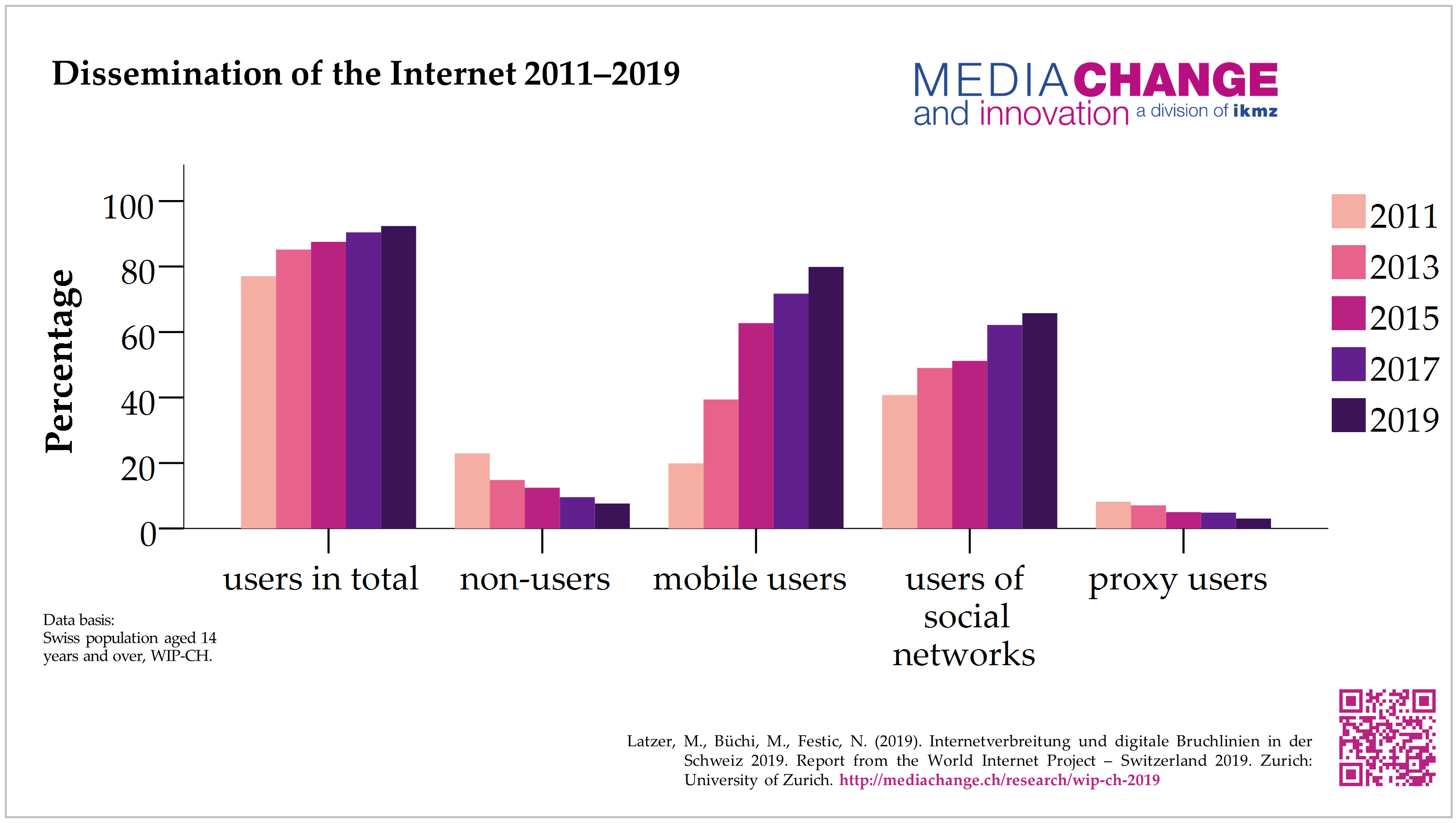People who use search engines or express their opinions on Facebook and WhatsApp leave behind many digital traces. Internet users believe that these traces are used for surveillance purposes. According to the UZH study, 43 percent of the 1,122 people surveyed believe that online surveillance is detrimental to society. In addition, a large proportion of Swiss Internet users (45 percent) is concerned that companies like Facebook are violating their privacy online. One consequence of this is that Internet users restrict themselves online: more than half state that the possible surveillance dissuades them from searching for information freely (59 percent) – e.g., researching sensitive political content – or from expressing opinions, interests or feelings (56 percent). "Chilling effects due to perceived surveillance are alarming from a democratic political point of view," emphasizes Michael Latzer, Professor of Media Change & Innovation at the University of Zurich. "They threaten the exercise of fundamental rights and social participation via the Internet."
The survey shows that in 2019, more people are online than 2017. 92 percent of the Swiss population use the Internet today, it is almost 100 percent of the under 50 year-olds. 80 percent of the total population also use mobile Internet. The average usage time has doubled since 2011 and now amounts to 25 hours per week. However, 40 percent of offliners benefit indirectly from the Internet by having others do research or tasks for them. The number of non-users has been more than halved in the last eight years. The absolute number of non-users (excluding proxy users) in Switzerland is thus around 340,000. On average, the self-evaluation of Internet users in Switzerland regarding their Internet skills has been relatively stable since 2011. Women rate their Internet usage skills as poorer compared to men.
Special Reports 2019 (Themenberichte)
News
About the Project
Th e Media Change & Innovation Division is the Swiss country partner of the World Internet Project (WIP). This international, collaborative project is looking at the social, political and economic impact of the Internet and other new technologies. The project started in 1999 and is chaired by Prof. Jeff Cole from the Annenberg School Center for the Digital Future, University of Southern California (USC), Los Angeles. The consortium includes more than 25 partners in countries and regions all over the world. The WIP conducts detailed, international comparative longitudinal studies on the use and impact of the Internet, publishes national and international reports and holds annual conferences. The representative Swiss WIP-CH 2019 survey (computer-assisted telephone interviews) was supported by the Federal Office of Communications.
e Media Change & Innovation Division is the Swiss country partner of the World Internet Project (WIP). This international, collaborative project is looking at the social, political and economic impact of the Internet and other new technologies. The project started in 1999 and is chaired by Prof. Jeff Cole from the Annenberg School Center for the Digital Future, University of Southern California (USC), Los Angeles. The consortium includes more than 25 partners in countries and regions all over the world. The WIP conducts detailed, international comparative longitudinal studies on the use and impact of the Internet, publishes national and international reports and holds annual conferences. The representative Swiss WIP-CH 2019 survey (computer-assisted telephone interviews) was supported by the Federal Office of Communications.





